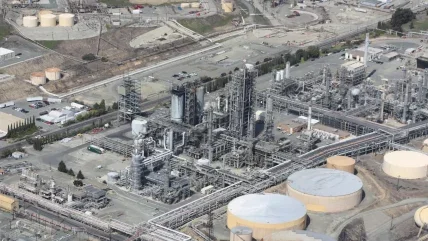
Newly inaugurated US President Donald Trump has ordered the resumption of processing export permit applications for new liquefied natural gas (LNG) projects, marking a significant shift in US energy policy.
The move, announced through an executive order, reverses a pause on new permits initiated by former President Joe Biden in early 2024.
The Biden administration had halted approvals to allow US national laboratories to assess the environmental and economic impacts of the rapidly growing LNG export industry.
US LNG exports reached record levels in 2023, establishing the country as the largest exporter of the commodity in the world. According to the US Department of Energy (DOE), these exports are projected to double by the end of the decade, with existing authorisations potentially enabling further growth.
The executive order directs the DOE’s Office of Fossil Energy and Carbon Management (FECM) to resume processing pending export applications for countries without free trade agreements (FTA) with the US.
The department stated that this resumption complies with the Natural Gas Act and aligns with the administration’s goal to “unleash American Energy Dominance.”
The pause on permits had caused delays for several high-profile projects, reported Reuters. In Louisiana, projects impacted by the pause include Commonwealth LNG, Venture Global’s CP2, an expansion of Cheniere Energy’s Sabine Pass facility, and the Lake Charles terminal operated by Energy Transfer.
In Texas, the second phase of Sempra’s Port Arthur LNG project is awaiting approval.
While the DOE is expediting approvals, it is also extending the public comment period for its recent study on LNG exports. Initially set to close on 18 February 2025, the comment period will now remain open until 20 March 2025.
The department stated that extending this timeline ensures adequate stakeholder input while maintaining a focus on developing a comprehensive administrative record.
Acting DOE Secretary Ingrid Kolb has instructed the FECM to resume processing applications in parallel with the National Environmental Policy Act (NEPA) review process. This coordinated approach is intended to streamline regulatory procedures and minimise inefficiencies.






